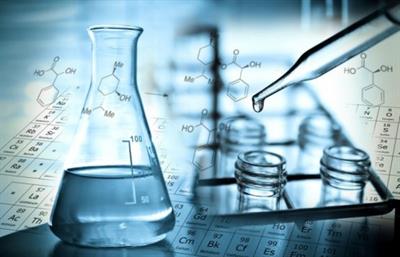Why High Quality Chemical Products Are Vital for Manufacturing and Manufacturing
A Comprehensive Overview to Examining Chemical Products for Optimum Integrated Solutions in Manufacturing and Beyond
In the significantly complex landscape of production, the evaluation of chemical items stands as an essential aspect in attaining incorporated solutions that prioritize safety and security, efficiency, and sustainability. This comprehensive overview describes essential elements such as regulatory conformity, product compatibility, and cost-effectiveness, all while emphasizing the value of environmental stewardship.
Understanding Governing Conformity
In the world of production, recognizing governing conformity is extremely important for guaranteeing both product safety and environmental security. Regulatory frameworks, such as the Occupational Security and Health Management (OSHA) requirements and the Epa (EPA) guidelines, determine the secure handling, storage, and disposal of chemical items. Compliance with these guidelines not only safeguards employees but likewise reduces environmental influence and enhances a business's credibility.
Suppliers need to carefully analyze the chemical compounds they use, ensuring adherence to the appropriate safety information sheets (SDS) and labeling demands, which supply important information pertaining to threats and safe usage. Furthermore, remaining abreast of industry-specific policies, such as the Enrollment, Examination, Authorisation and Restriction of Chemicals (REACH) in Europe, is critical for keeping compliance and staying clear of possible legal implications.
Regular audits and training are vital components of a detailed compliance approach, promoting a culture of safety and awareness amongst workers. By focusing on governing compliance, suppliers can minimize danger, improve operational performance, and add to sustainable techniques within the sector, inevitably causing enhanced product top quality and client satisfaction.
Assessing Item Compatibility
Governing conformity establishes the structure for secure manufacturing methods, but reviewing product compatibility is just as important for operational efficiency and safety. Chemical Products. Item compatibility refers to the capacity of various chemical substances to exist together without adverse communications that can jeopardize the stability of procedures or products. A complete evaluation starts with understanding the chemical properties, consisting of sensitivity, solubility, and security under various problems
Makers must conduct compatibility screening to identify prospective responses that may happen when chemicals are combined or enter contact with each other. This includes reviewing elements such as temperature variants, stress adjustments, and the existence of impurities. It is also crucial to take into consideration the results of products made use of in containers, pipes, and tools, as these can affect chemical behavior and efficiency.
Additionally, makers have to analyze the prospective influence of product compatibility on end-user applications. Inappropriate items can lead to operational disturbances, item failings, and security risks, which can damage track record and monetary standing. Consequently, a systematic method to assessing product compatibility not only improves operational effectiveness however also ensures the safety and security and dependability of chemical products throughout their lifecycle.
Examining Cost-Effectiveness
Examining cost-effectiveness is essential for producers aiming to optimize their chemical manufacturing processes while keeping earnings. This evaluation starts with a comprehensive evaluation of both direct and indirect expenses associated with chemical products. Direct costs encompass the purchase cost of chemicals, transportation, and storage, while indirect expenses may consist of labor, upkeep, and overhead expenses.
To successfully review cost-effectiveness, manufacturers ought to utilize a complete expense of possession (TCO) method. This method makes it possible for an extensive understanding of all costs throughout the product lifecycle, from procurement to disposal. Additionally, making use of efficiency metrics-- such as return rates and process performance-- can offer understandings right into how well chemical products add to overall production objectives.
Benchmarking against sector requirements can additionally highlight potential locations for price decrease or improvement. By contrasting their prices and performance with competitors, suppliers can determine ideal practices and innovative options.
In addition, engaging suppliers in discussions regarding prices, quantity discount rates, and long-lasting contracts might yield positive economic arrangements. Inevitably, a strategic focus on cost-effectiveness supports not only profitability yet likewise sustainability in the competitive landscape of chemical production.
Studying Environmental Effect

One crucial facet is the selection of raw products. Lasting sourcing can considerably lower adverse influences, why not try this out as sustainable or less dangerous products typically result about his in reduce discharges and less toxic byproducts. Additionally, suppliers ought to take into consideration the effectiveness of their production procedures; enhancing these can decrease waste and power consumption.
In addition, product formula plays an important role in figuring out environmental safety and security. Utilizing green chemistry concepts can bring about the growth of more secure, much less polluting options. Suppliers ought to additionally assess end-of-life scenarios for their items, advertising recycling or safe disposal practices to alleviate long-lasting ecological consequences.
Incorporating these considerations into product assessment not just boosts business obligation but additionally straightens with boosting consumer demand for eco pleasant products. Chemical Products. Inevitably, a comprehensive analysis of environmental impact is important for cultivating sustainable production practices
Executing Top Quality Control Actions
The commitment to lasting practices and environmental safety normally prolongs to the implementation of quality control actions within producing procedures. Quality assurance is crucial for making certain that chemical items meet predefined criteria and guidelines, consequently securing not only item effectiveness however also like this ecological stability.
To effectively execute quality assurance procedures, suppliers need to adopt a methodical method, beginning with the facility of clear high quality standards. This includes specifying requirements for raw materials, intermediate items, and last outcomes. Normal screening and assessment procedures must be instituted to keep track of compliance with these criteria throughout the manufacturing cycle.

Educating and engaging staff in quality control techniques is equally essential. A well-informed workforce adds to a culture of top quality and accountability, enhancing general operational performance. Ultimately, extensive high quality control gauges not just guarantee conformity but additionally strengthen the brand's reputation and foster trust among consumers, straightening with the overarching objectives of sustainability and security in the chemical manufacturing industry.
Final Thought
Finally, the assessment of chemical products necessitates a detailed understanding of regulatory conformity, product compatibility, cost-effectiveness, and environmental influence. Carrying out robust quality assurance gauges additionally improves functional integrity and advancement within making procedures. By embracing a detailed strategy, companies can maximize chemical utilization, lessen associated dangers, and straighten with market best practices, ultimately promoting sustainable growth. This guide functions as a vital source for accomplishing these critical purposes in chemical product analysis.